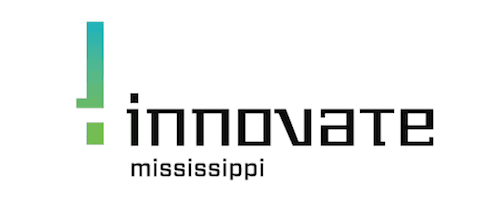In my last column I talked about the culture of giving in Mississippi, which we know cuts across race and religion. Our citizens are among the most charitable in the country. Similarly, we need to work on embedding a culture of innovation in all citizens of Mississippi regardless of age, race, religion and economic status. There is strong research-based evidence that 2.5 percent of individuals will be innovators in a given population, whom I consider to be “game-changers” in their respective areas of expertise.
If one was to oversimplify this scenario, we potentially have 74,182 individuals in Mississippi who are current and potential game changers as seen in the table below. Furthermore, if you were to look at the racial breakdown of the state’s population, we would have almost 44,000 white and over 27,000 African American individuals who have the power transform our state. I purposefully choose not to exclude any age groups in this analysis, because kids often approach problems in very unique ways and come up “answers” to problems, whereas adults are more worried about coming up the “correct answers” to the problems.
We have to start imagining what is possible with an army of 74,000 game-changers who may be farmers, cooks, doctors, janitors, athletes, teachers, manual laborers, nurses, beauticians, students, scientists or engineers. If you think I am exaggerating, please think again! David Abney, the present CEO of United Parcel Service started his career with UPS in Greenwood loading trucks and now leads a company valued at more than $90 billion; Riley B. King, a son of sharecroppers in the Mississippi Delta used his innovative style and business acumen to become the most famous Blues musician in the world. There are others like Edward Barq who invented root beer in 1898 and Dr. James Hardy, who performed the first human heart transplant in 1963. More recently, Charley Hutchison became one of the youngest Americans to develop an app for Apple iOS when he was just a sixth grader at St. Andrew’s Middle School in Ridgeland. Earlier this year, Sarah Thomas from Pascagoula became the NFL’s first full-time female official. Sarah was also the first female to officiate a bowl game at the Little Caesars Pizza Bowl in 2009 and has changed the game of football.
While our people are our greatest asset, not everyone has an opportunity to contribute to the economy at the same level. National census data show that all 1.9 million black-owned businesses nationwide produce less than 1 percent of the nation’s GDP and zero percent job growth. Combined with all Hispanic-owned businesses, the total contribution is still less than 4 percent with a mere 1 percent job growth annually. By the middle of this century, black and Hispanic Americans will represent 42 percent of the nation’s population. “America cannot reach her highest economic competitiveness goals with so much of her population producing so little,” says Johnathan Holifield, attorney, former NFL player and the architect of Inclusive Competitiveness, who will be one of the keynote speakers at the upcoming TECHJXN Innovation Summit and #YesWeCode Hackathon on June 30-July 1 in Jackson. Other speakers include Gov. Phil Bryant and Mayor Tony Yarber.
This event is designed to serve as a catalyst that kicks off a strategic planning phase toward development of a TECHJXN Innovation Corridor, in which essential elements are included to enable participation for underrepresented communities in the innovation economy. Nearly twenty local and national organizations are partnering to host the TECHJXN summit where TECH stands for technology, entertainment, construction and healthcare. Add in elements of education and policy and you have a significant foundation of the innovation value chain to build an innovation hub or district, which is an emerging concept in urban planning for stimulating economic growth in cities across the globe. “The idea of inclusive competitiveness presents a unique opportunity to promote development in Jackson by aligning innovative strategies with the talent, ideas and diversity of the city’s residents,” said Rhea Williams-Bishop, executive director of the Jackson-based Center for Education Innovation and a lead partner for this event.
Following the half-day summit, we will be holding Mississippi’s largest ever youth hackathon, where 80 students from Mississippi, Florida, Georgia and Alabama will be designing and prototyping mobile applications designed to address challenging social and civic issues. The students from other states will be arriving in Mississippi on Estella’s Brilliant Bus and will complete their journey in New Orleans by competing in the 2015 Essence Festival Hackathon. One key step toward bridging the digital divide that exists in our country and state is to connect minorities to technology opportunities and technological skills through events like the TECHJXN #YesWeCode Hackathon. For tickets and volunteering information please visit www.techjxn.com.
Dr. Sumesh Arora is Vice President at Innovate Mississippi, a non-profit organization with a mission to drive innovative business growth in Mississippi. His doctoral research was focused on how new ideas spread and its applications to business, economic and policy development. Follow him on Twitter @DrSumeshArora or contact via email at sarora@innovate.ms with questions about developing innovation strategy for your company or organization.



